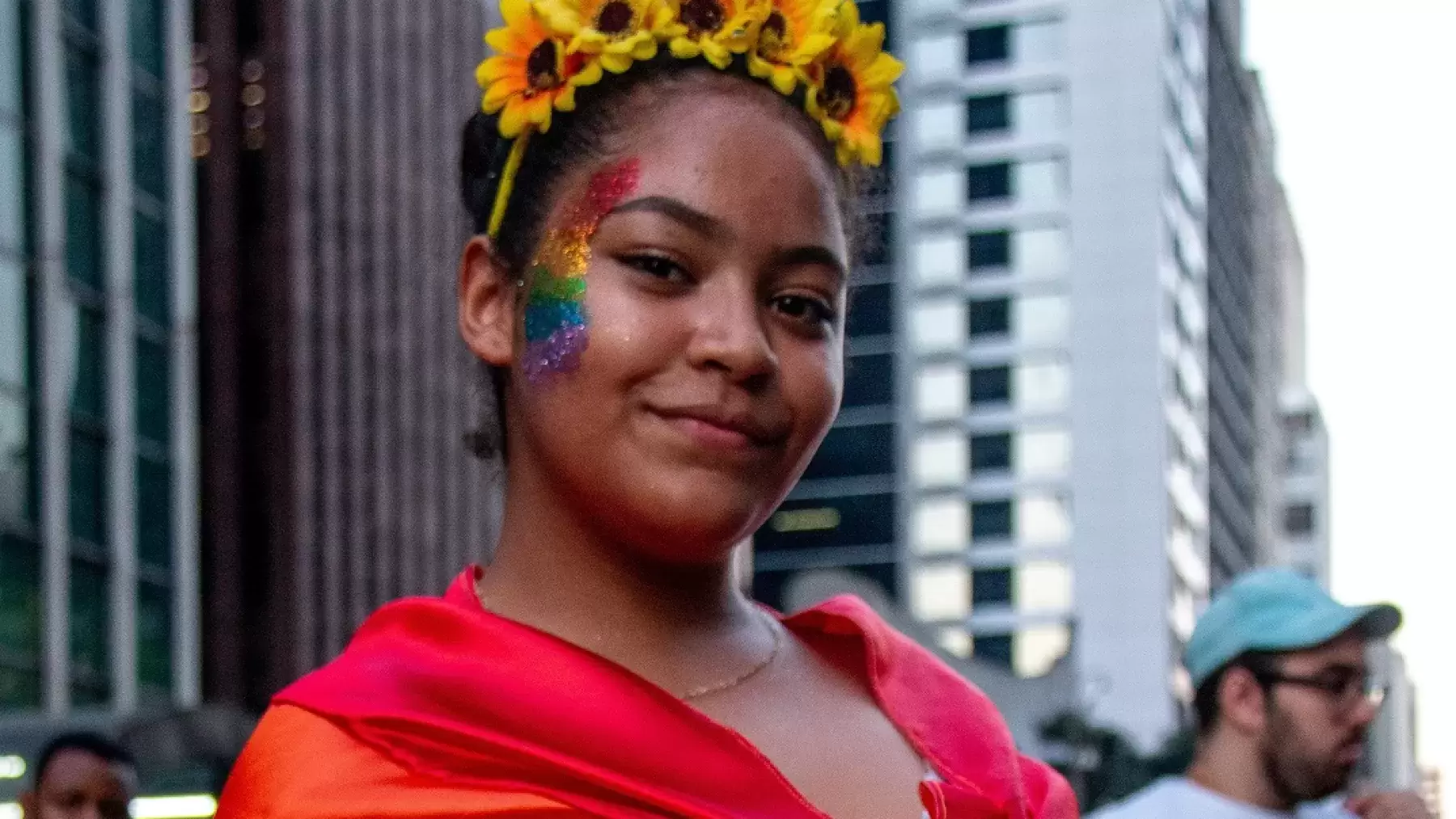
By Kat McIntosh, Manager of Global Peer Support at Mental Health America
Everyone deserves to feel pride in their mental health. Research shows that sharing the story of your mental illness can be empowering and may enhance a person’s self-esteem[1].
In the 1970s, a mental illness diagnosis meant you were considered ill for the rest of your life and not given much hope. This hopelessness could have made it difficult for those living with mental health conditions to feel pride in their mental health.
The consumer movement, which gave rise to peer support, called for inclusion[2]. It advocated for the mantra “nothing for us, without us.” We see evidence of this movement in the principles of peer support--it is voluntary and has equally-shared power.
A peer is someone who shares your lived experience. This lived experience can be having a mental health condition, but it can also include other characteristics such as sharing a specific mental health diagnosis, gender identity, sexual orientation, race, ethnicity, language, or disability. Being a peer can also be a situational experience, such as being a parent or experiencing a life-altering event such as a natural disaster.
One principle of peer support is equally-shared power, but equality may not be the experience of LGBTQ peers. A recent report by the Trevor Project found that 75% of LGBTQ youth had experienced discrimination in their lifetime[3]. We need to ensure that LGBTQ peers feel included. Inclusion can help promote pride.
Mental Health America (MHA)’s screening data shows that 95% of LGBTQ youth ages 11-17 scored moderate to severe for depression[4]. Not only are LGBTQ folks experiencing challenges with their mental health, but they are also simultaneously experiencing discrimination. Ending this discrimination is vital since personal, family, and social acceptance of sexual orientation and gender identity can affect the mental health and personal safety of LGBTQ individuals[5].
It is crucial to help LGBTQ peers to feel pride in their mental health. To do this, we must advocate for acceptance and inclusion. The absence of this inclusion can cause negative impacts on mental health. Reports indicate that LGBTQ persons experience stigma, discrimination, and denial of both civil and human rights5. Trevor Project’s recent survey also showed that 94% of LGBTQ youth reported that recent politics affected their mental health.
Inclusion happens in everyday events like using chosen names and pronouns. When we use the chosen name of LGBTQ youth, it can help reduce suicidal ideation and depression[6]. Additionally, when pronouns are respected, it can minimize suicide risk by 50%.
Inclusion also means creating safety for LGBTQ folks to share their experiences without facing discrimination. In a survey of LGBTQ people, over 50% reported that they had experienced cases of providers denying care, using harsh language, or blaming the patient’s sexual orientation or gender identity for causing an illness. Fear of discrimination may lead LGBTQ folks to conceal their sexual orientation or gender identity from providers or avoid seeking care altogether. We can help create safe spaces by supporting the Equality Act and speaking up against Anti-Transgender Sports Bans.
At MHA, we believe that LGBTQ peers deserve to feel pride in their mental health. We need to build safe spaces where they can feel this pride. Building safe spaces include asking Congress to fund mental health crisis services that identify meeting LGBTQ youth and adults where they are, such as in school and community settings and not in jails or hospitals.
It also includes supporting the Promoting Effective and Empowering Recovery Services (PEERS) in Medicare Act of 2021, which promotes the use of peer support specialists as part of integrated care in Medicare. The PEERS bill is important since peer support reduces hospital admission rates, increases social support and social functioning, and decreases substance use and depression.
Take this important action and share our BIPOC LGBTQ Peer Support Survey. This survey helps ensure that the experiences of LGBTQ peers are heard. Help us ensure that LGBTQ peers feel pride in their mental health.
[1] https://www.ncbi.nlm.nih.gov/pmc/articles/PMC3698841/
[2] https://camphro.files.wordpress.com/2016/03/outreach-materials-mh-movement.pdf
[3] https://www.thetrevorproject.org/survey-2021/
[4]https://mhanational.org/mental-health-and-covid-19-what-mha-screening-data-tells-us-about-impact-pandemic
[5]https://www.healthypeople.gov/2020/topics-objectives/topic/lesbian-gay-bisexual-and-transgender-health
[6] https://www.ncbi.nlm.nih.gov/pmc/articles/PMC6165713/




